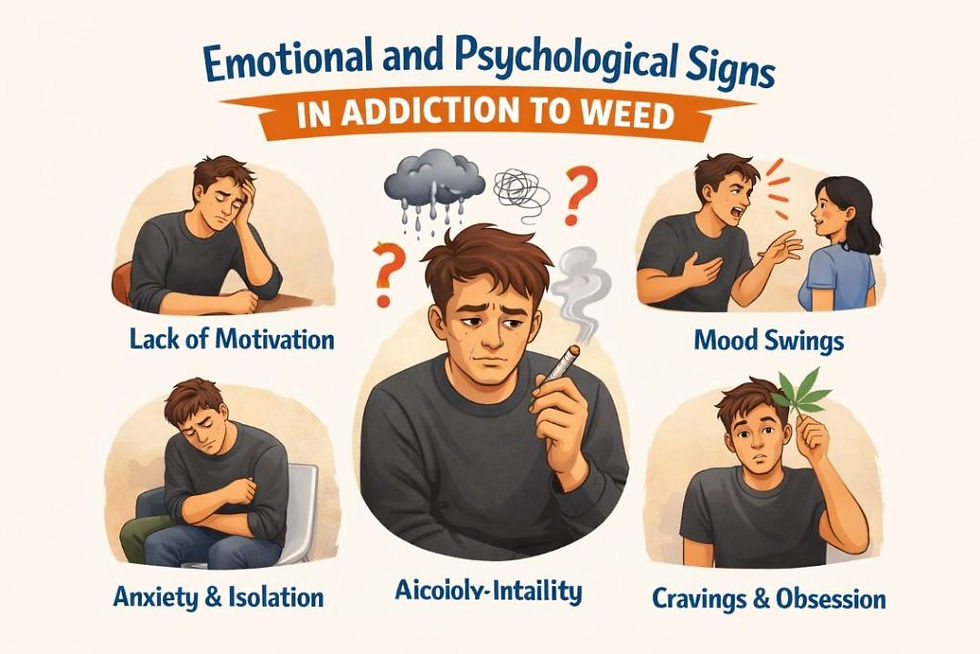Opiate Overdose Warning Signs & Support at DeLand Treatment Solutions
- Felicia Parris

- Sep 11, 2025
- 3 min read
Recognizing the Signs of an Opiate Overdose: What You Need to Know
Opiates and opioids are powerful substances used for pain management, but they also carry a high risk of misuse, dependence, and overdose. Across the United States, opioid overdoses remain a leading cause of preventable death, affecting families and communities every day. Knowing the warning signs of an opiate overdose can save a life and may be the difference between tragedy and recovery.
At DeLand Treatment Solutions, we believe education and awareness are the first steps to prevention. This guide explains how to recognize the symptoms of an overdose, why they happen, and what to do if you or someone you love is at risk.

Why Opiate Overdoses Happen?
Opiates, including prescription drugs such as oxycodone, hydrocodone, morphine, and illicit drugs like heroin, depress the central nervous system. They slow breathing, heart rate, and brain activity. In high amounts, or when mixed with other substances like alcohol or benzodiazepines, they can overwhelm the body and cause it to shut down.
Tolerance also plays a major role. People who use opioids regularly may need higher doses over time to achieve the same effects, which increases the chance of accidental overdose.
Common Signs of an Opiate Overdose
Being able to recognize the symptoms quickly is critical. Opioid overdoses are medical emergencies and require immediate attention. Here are the most common warning signs:
Slow or Difficult Breathing Breathing may become extremely shallow, irregular, or even stop altogether. This is one of the most dangerous signs of overdose, as oxygen deprivation can quickly lead to brain damage or death.
Unresponsiveness or Loss of Consciousness The person may appear to be asleep and cannot be woken, even with loud noise, shaking, or pain stimulus.
Pinpoint Pupils One of the hallmark signs of opioid overdose is very small, constricted pupils that look like tiny dots.
Blue or Pale Skin, Lips, or Fingernails A lack of oxygen can cause skin discoloration. This bluish or grayish tint is a sign that immediate help is needed.
Weak Pulse or Low Blood Pressure Circulation slows dramatically during an overdose, leading to a weak or irregular pulse.
Snoring or Gurgling Sounds Sometimes mistaken for deep sleep, this sound may actually indicate airway blockage due to slowed breathing.
Extreme Drowsiness or Confusion An overdose can cause severe disorientation or an inability to stay awake.
If you notice any of these symptoms, call 911 immediately and stay with the person until help arrives.
What to Do in the Event of an Opiate Overdose?
If you suspect someone is overdosing:
Call 911 right away. Emergency responders can provide life-saving care.
Administer naloxone (Narcan) if it is available. This medication can temporarily reverse the effects of an opioid overdose by restoring breathing. It is safe, effective, and widely distributed in many communities.
Keep the person awake and breathing if possible. Try to rouse them and monitor their breathing.
Lay them on their side to prevent choking in case of vomiting.
Stay until help arrives. Never leave someone alone during an overdose.
Acting quickly can save a life.
Preventing Opiate Overdose
While emergencies happen, prevention is possible. Here are important ways to reduce overdose risk:
Avoid mixing opioids with alcohol or other depressants. Combining substances multiplies the risk.
Use only as prescribed. Never take more than directed or share prescriptions.
Educate yourself and loved ones about the risks and warning signs.
Seek professional treatment if you or someone you care about is misusing opioids. Detox and recovery programs provide safe medical support and long-term solutions.
The Role of Professional Treatment
Detoxing from opioids can be physically and emotionally difficult. Attempting to quit “cold turkey” may increase the risk of relapse and overdose. That’s why professional treatment, including opioid detox programs, is essential.
At a licensed treatment center like DeLand Treatment Solutions, patients receive:
Medically supervised detox to manage withdrawal safely.
Medication-Assisted Treatment (MAT) to reduce cravings and stabilize recovery.
Therapy and counseling to address the underlying causes of addiction.
Supportive community care that fosters long-term healing.
Treatment doesn’t just help individuals, it restores families, strengthens communities, and saves lives.
Begin Your Path to Healing with DeLand Treatment Solutions
If you or someone you love is at risk of opioid overdose, know that you are not alone. Recovery is possible, and support is available right now.
At DeLand Treatment Solutions, we provide compassionate, medically supervised care for individuals struggling with opioid misuse and dependence. Our team is here to guide you safely through detox, offer ongoing treatment, and help you reclaim a healthier, brighter future.
📞 Call us today at (386) 866-8689 to speak with our caring staff.
Take the first step toward safety and healing. Together, we can overcome addiction, prevent overdoses, and build hope for tomorrow.
👉 Explore Opiate Overdose Resources and Treatment at DeLand Treatment Solutions



Comments